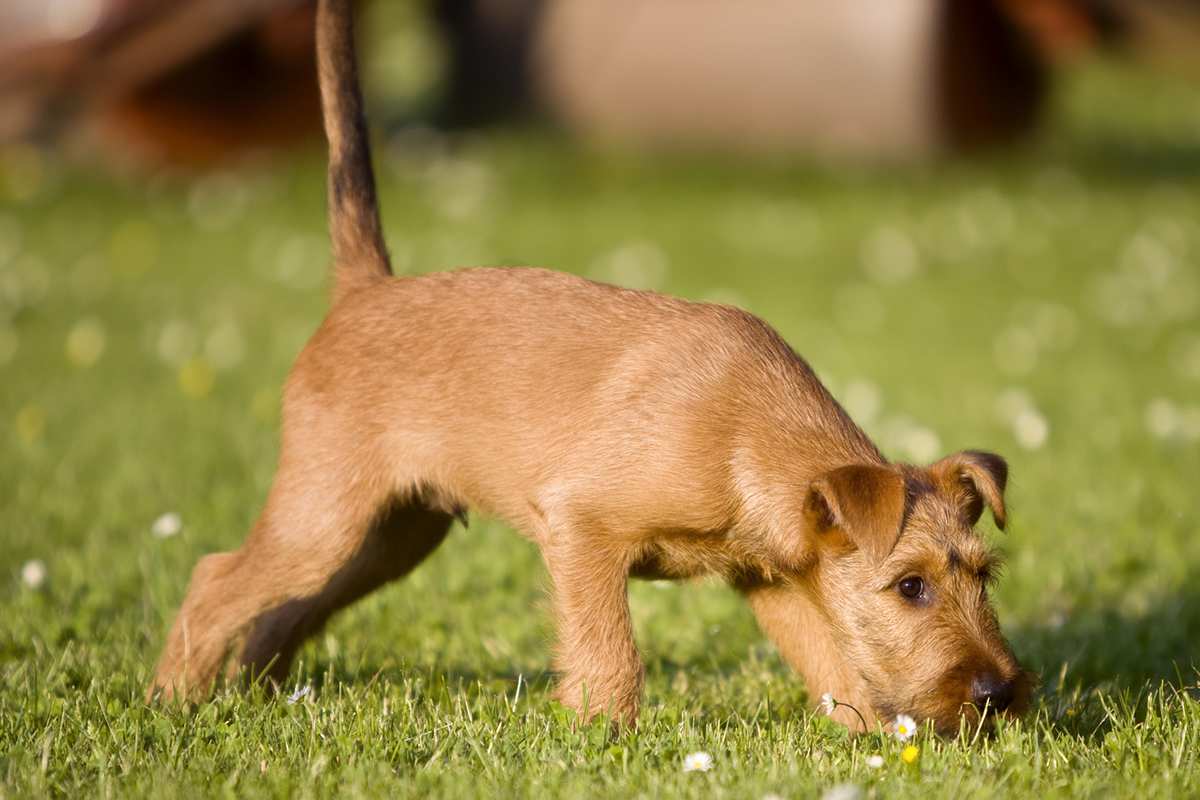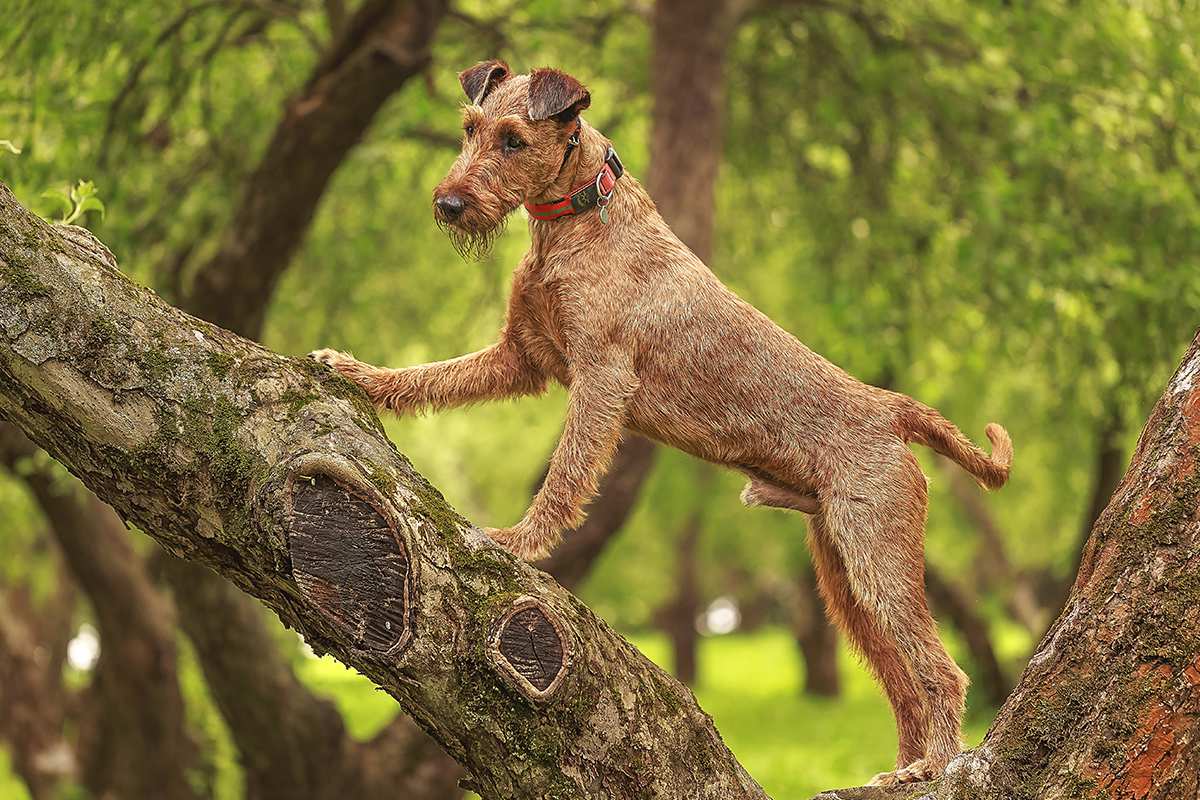Irish Terrier


 Puppy
Puppy
 Fully Grown
Fully Grown
The Irish Terrier is a typical small-sized terrier with wiry hair and an energetic character that makes a great companion and family dog. Irish Terriers tend to think they are larger than life and are always ready for action. They are like little bunnies with batteries that never stop. Living with them can be tiring, as it seems they never want to be still. If you have a busy lifestyle, they will certainly be able to keep up with you!
Their confidence far outweighs their ability. They are extremely brave and can sometimes act aggressively toward other dogs when they feel threatened or provoked…even if the opponent is 10 times their size! This breed isn’t big on being social towards other dogs.
Irish Terriers make loyal devoted companions to their owners but once they set their mind on something there is no backing off. Early socialisation is recommended as well as good training with clear boundaries.
Their body coat is strong, wiry and very thick. Their fur is short and slicker around their slightly bearded face, which makes them look very cute. Regular brushing and grooming is recommended.
| Weight: | 11-12 kg |
| Health risk: | Medium |
| Life expectancy: | 13-15 years |
| Coat: | Short |
| Grooming intensity: | Medium |
| Monthly cost (food): | low |
| Trainability: | Medium |
| Activity level: | High |